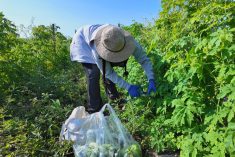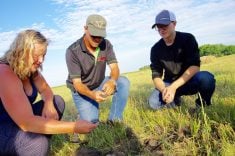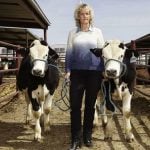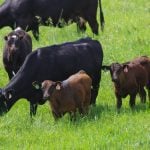The long-term value current federal Minister of Agriculture Marie Claude Bibeau will provide to farmers hinges largely on her ability to reform business risk management programming.
That is a difficult and expensive task.
Recall the current plan to reform business risk management (BRM) programs was made way back in 2017, at the same time Ottawa and the provinces agreed to a five-year agricultural partnership.
The agreement included a commitment to pay for BRM programming, with 60 per cent of the funds coming from Ottawa and 40 per cent by way of provincial and territorial governments.
Read Also

Canada to have increased presence at Agritechnica 2025
Interest in diversifying trade markets is taking more Canadian manufacturers to Agritechnica 2025, the world’s largest machinery show.
Canadians have since seen an election — where the victorious Liberals campaigned on improving BRM programs – and a new minister, Bibeau, was ushered into the role.
If reforming the programs were easy, it would have been done by now.
As readers know, long-expected BRM changes have not occurred, despite Bibeau continuing to claim improving the programs, particularly AgriStability, is a priority.
This will cost money.
Adjusting AgriStability’s reference margin limit to 85 per cent levels, or close to it, will cost hundreds of millions of dollars – and there are other expensive changes being proposed.
Prior to the COVID-19 pandemic, it was apparent no changes were going to be made until at least July; but even that was optimistic thinking.
By the start of 2020, the Liberals had spent billions of dollars more than what they were expected to when they released their budget 10 months earlier.
None of that extra spending was used on BRM reform.
If the changes were truly a priority for government, they would have proved it in their spending decisions.
Bibeau instead insisted a review of the program was appropriate to make sure “that when we’re ready to put more money on the table, we would do it towards the right program.”
To recap: The Liberals announced a review of the programs in 2017 and continued to express a desire to reform BRMs.
Despite increasing funding beyond what they originally budgeted for on a number of fronts, no additional money was given to improve the programs because Bibeau required a review.
Now, it seems like it might be a long time before Ottawa is ready to put more money on the table, even if they do know which program it should go towards.
A recent “economic and fiscal snapshot” from Ottawa showed $527 million being directed to agriculture and agri-food as a result of the Covid-19 crisis.
Some of that money is being used to increase funding to existing BRM programs to assist in pandemic relief.
None of that money is being used to help usher in the long called for changes to AgriStability or other BRM programs.
The same snapshot also showed Canada will post a $343 billion deficit as the Liberals try to navigate the economic fallout of the Covid-19 crisis.
Bibeau’s party has demonstrated a willingness to spend more than what it originally budgeted for – and a willingness to spend money in general.
It’s a shame they have not found some dollars to improve BRM programs.
Part of the blame for the delay rests on the provinces, each of which can make its own case for why it has not been in a position to spend more in recent years on its 40 per cent share of the cost. Some provinces are even believed to be arguing their current share of the bill is too high.
But leadership needs to come from Bibeau.













